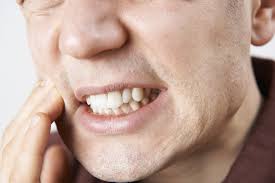Teeth grinding, also known as bruxism, is a common condition that affects many people, often without them even realizing it. This involuntary behavior, whether it occurs during the day or night, can lead to significant dental damage, including tooth wear, jaw pain, and headaches. If you’re struggling with bruxism, it’s crucial to take proactive steps to reduce teeth grinding and protect your oral health. In this article, we will explore several effective methods to help minimize Teeth Grinding and improve your quality of life.
Understanding Teeth Grinding and Its Causes:
Teeth grinding can occur due to a variety of factors, both physical and psychological. Some common causes of bruxism include:
- Stress and anxiety
- Sleep disorders such as sleep apnea
- Misaligned teeth or an abnormal bite
- Side effects from certain medications
Identifying the root cause of your teeth grinding is essential for selecting the right treatment. If you believe stress or anxiety may be contributing to your condition, incorporating relaxation techniques into your routine may help reduce the frequency and severity of your teeth grinding episodes.
Use of Mouthguards: A Protective Measure for Teeth Grinding
One of the most effective ways to reduce teeth grinding is by wearing a custom mouthguard. A mouthguard provides a cushion between your upper and lower teeth, reducing the impact of grinding and preventing tooth damage. Dentists often recommend custom-fitted mouthguards because they offer superior comfort and protection compared to over-the-counter options.
The benefits of using a mouthguard include:
- Prevents wear and tear on teeth
- Reduces jaw pain and tension
- Minimizes the risk of tooth fractures
- Helps improve sleep quality
Having a mouthguard professionally fitted by your dentist ensures that it is comfortable, durable, and offers the best protection for your teeth while you sleep.
Stress Reduction: Alleviating the Psychological Triggers
Stress is one of the leading causes of teeth grinding, especially during sleep. When stress is left unmanaged, it can lead to physical tension in the jaw, prompting you to grind your teeth. To reduce teeth grinding, it’s essential to incorporate stress-relieving practices into your daily routine.
Effective stress management techniques include:
- Meditation or deep breathing exercises
- Regular physical activity, such as yoga or walking
- Engaging in hobbies or relaxation activities
- Talking to a therapist or counselor for support
By managing stress effectively, you can reduce the frequency of teeth grinding and protect your teeth from damage.
Improve Sleep Hygiene: Establishing Healthy Sleep Habits
Sleep plays a vital role in reducing teeth grinding. Poor sleep hygiene can exacerbate bruxism, while maintaining a healthy sleep routine can help you sleep more peacefully and reduce grinding. Setting up a calming bedtime routine and creating a sleep-friendly environment can make a significant difference.
Follow these tips to improve your sleep hygiene:
- Stick to a regular sleep schedule
- Avoid caffeine or alcohol in the evening
- Make your bedroom a calm and quiet space
- Limit screen time before bed to reduce stimulation
Getting a restful night’s sleep can help reduce the likelihood of teeth grinding and improve your overall well-being.
Addressing Misalignment and Dental Issues:
In some cases, teeth grinding may be caused by dental issues such as misaligned teeth or an improper bite. If your teeth are not properly aligned, your jaw muscles may compensate by clenching or grinding during sleep. If this is the case, visiting a dentist to address these dental problems is essential.
Treatment options may include:
- Orthodontic treatment to align your teeth
- Dental restorations such as crowns or bridges
- Bite adjustments to alleviate jaw strain
By correcting underlying dental issues, you can minimize the occurrence of bruxism and prevent further damage to your teeth.
Medical Solutions: Seeking Professional Help for Persistent Grinding
If your Teeth Grinding Treatment persists despite trying various methods, it may be time to consult a medical professional. In some cases, prescription medications or therapies may be necessary to reduce bruxism and prevent dental damage. A healthcare professional can assess your situation and recommend a personalized treatment plan.
Potential medical treatments for teeth grinding include:
- Muscle relaxants or sedatives to reduce jaw tension
- Botox injections to relax jaw muscles
- Cognitive-behavioral therapy (CBT) to address psychological factors
Consulting with a dentist or healthcare provider ensures you receive the most appropriate treatment based on the severity of your condition.
Conclusion:
Teeth grinding may seem like a minor problem, but if left untreated, it can cause serious damage to your dental health. By using methods like mouthguards, stress reduction techniques, and improving sleep hygiene, you can significantly reduce teeth grinding and protect your smile. If you’re dealing with more severe cases of bruxism, seeking professional help from a dentist or medical provider is crucial. Don’t wait—take action now to reduce teeth grinding and maintain a healthy, pain-free mouth.

